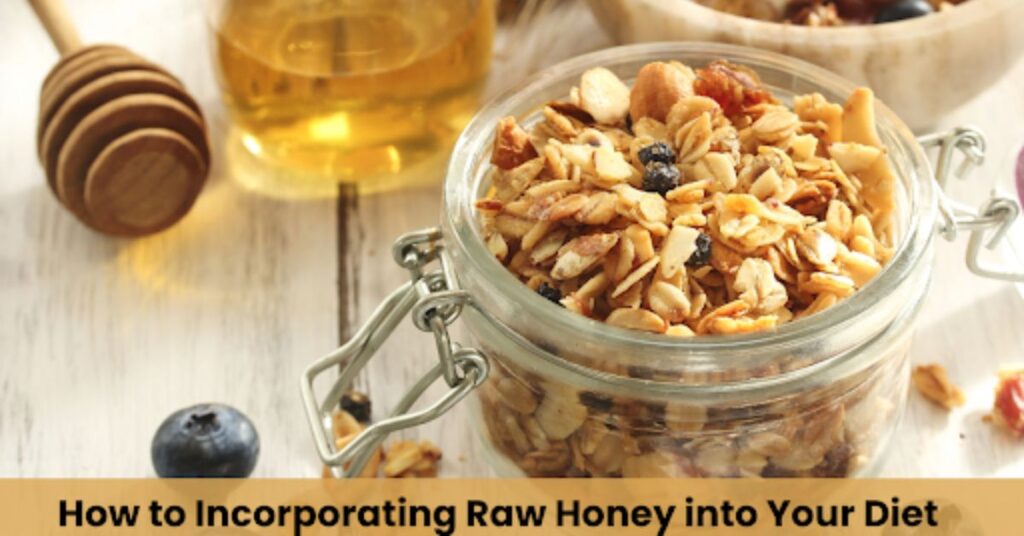Raw honey, often regarded as one of nature’s purest sweeteners, has surged in popularity due to its numerous health benefits and culinary versatility. Unlike processed honey, which loses much of its nutritional value, raw honey maintains its natural enzymes, vitamins, making it an excellent addition to a health-conscious diet. Whether you’re a culinary enthusiast looking to experiment with new flavors or someone seeking natural remedies for everyday ailments, raw honey offers a multitude of uses that can elevate both your well-being and your meals.
Nutritional Profile of Raw Honey
Raw honey is packed with essential nutrients that contribute to its status as a superfood. It’s a rich source of vitamins such as B6, B12, niacin, riboflavin, and pantothenic acid, as well as minerals like calcium, magnesium, and potassium. These nutrients play vital roles in various bodily functions, from supporting your nervous system to aiding in bone health.
It’s not just the vitamins and minerals that make raw honey so remarkable it’s also the antioxidants. Raw honey is rich in polyphenols and flavonoids, potent compounds that help protect your body from oxidative stress caused by free radicals. These antioxidants are linked to a reduction in inflammation, positioning raw honey as a natural ally in reducing the risk of chronic diseases such as heart disease and diabetes. Furthermore creamed raw honey provides the same nutritional benefits, with its spreadable texture making it a convenient and delicious addition to your meals.
Health Benefits of Raw Honey
Antioxidant Properties
Most of the potential health benefits of raw honey have been its antioxidants. The most notable antioxidants it contains are flavonoids and polyphenols, which protect the body against oxidative stress that can lead to premature aging and diseases caused by free radicals in the body, which will reduce inflammation and ultimately be beneficial to one’s health.
As the Journal of Food Science notes, raw honey contains over 200 substances, including enzymes, amino acids, and antioxidants. These act in concert providing all the possible health benefits: raw honey is one of the most potent additions to a healthy diet.
Antibacterial and Antifungal Effects
Raw honey is reckoned as a potential therapeutic agent because of its multiple possibilities by natural antibacterial and antifungal properties. Raw honey makes an environment hostile to the bacterial and fungal growth due to its intrinsic properties, such as low pH and high hydrogen peroxide levels. Therefore, raw honey is considered to be used in the minor cuts, wounds and burns for speeding up the healing process and lessening the possible infections.
Digestive Health
Raw honey is also beneficial for our digestive health. It contains prebiotics that nourish beneficial bacteria in the gut, promoting a healthy balance of microorganisms. This can help prevent digestive issues like bloating, indigestion, and constipation.
Immune System Support
Health benefits promised by honey Raw honey boosts immunity. Its antioxidants strengthen the immune system. This, therefore, enables the body to be in a better position to fight infections. Antimicrobial and antibacterial qualities in raw honey help to build up immunity against the colds, coughs, among others.
It has been centuries since raw honey serves as a traditional medicine to soothe sore throats and respiratory infections. The soothing effect of raw honey might help ease the irritation and relieve the symptoms of colds and coughs piercing through that annoying throat.
Incorporating Raw Honey into Your Diet
As a Natural Sweetener
The simplest and most effective way to start from raw honey in the diet is to “natural sweetener” it. For instance, in your morning tea or coffee, even if you add it to a smoothie, raw honey will make them taste a lot better than the refined sugars. Not only does it sweeten the drink, but it also lends a floral flavor to it.
In Cooking and Baking
Among the varied cooking and baking ingredients, raw honey is undoubtedly one of the most versatile. It marinates meats, enhances salad dressings, and graces desserts with pure, heavenly sweetness. Indeed, its added richness has much to offer both sweet and savory foods.
As a Remedy for Sore Throats and Coughs
One effective remedy for soothing a sore throat is raw honey. It is one of the basic home remedies when you happen to have a sore throat or cough, using warm water, raw honey, and lemon juice. You can always rely on it to soothe the throat and have some bacteria-fighting properties that could turn out pretty great in infection-busting times.
In Skincare
Aside from health benefits, raw honey also has the benefits of being good for your skin. Raw honey has great moisturizing and antibacterial properties, making it a great natural ingredient for skincare. It can be applied in face masks, scrubs, and cleansers to moisturize and prevent acne while promoting a clear, bright complexion.
To create a simple face mask, combine raw honey with other natural ingredients like yogurt or avocado. Apply the mixture to your face for 10-15 minutes before rinsing off. Your skin will feel soft, smooth, and nourished.
Choosing and Storing Raw Honey
Raw honey is always quality honey. For honey to be raw and unfiltered, then it will promise that the honey will keep all the naturally occurring enzymes and nutrients. One should consider buying honey directly from local beekeepers or reputable health food stores to ensure that the honey has all the freshness and goodness it can have.
To preserve the beneficial property of raw honey, one should store it in a cool, dry place. Raw honey may crystallize over time, but processed honey will not. If you dislike the crystallized form, you could simply warm the honey with a warm water bath until it becomes fluid again.
Potential Risks and Considerations
Although there are many benefits in raw honey, there are some important concerns to consider. Raw honey should not be given to infants younger than one year old since they might catch botulism, a rather rare but lethal bacterial infection. Another issue is individuals allergic to pollen or have bee sting allergies and need to exercise care in ingesting raw honey, since this could lead to allergic reactions.
Conclusion
Therefore raw honey is not just a perfect nutritional store, but also an inseparable part of an individual’s diet. It is more than just a sweetener as it provides antioxidants and helps as a digestive and immunity booster. Not just that, it sweetens drinks which also works great for the throat on the skin. So, raw honey would have infinite ways to make life better and healthier. It really does possess such wonderful natural goodness, thus, it deserves a place on the superfood list for anyone pursuing a healthy lifestyle.
FAQs
1. Is raw honey better than processed honey?
Indeed, raw honey is considered superior to processed honey in the sense that processed honey is subjected to unnecessary heat treatment and filtration while raw honey is completely devoid of any such treatment. That is to say, raw honey retains all its natural enzymes, antioxidants, and nutrients.
2. Can raw honey help with weight management?
Raw honey can be part of a healthy diet, but in moderation. It is a natural sweetener that helps regulate blood sugar and supports metabolism. Nevertheless, given it’s calorie dense, it should be taken in moderation as part of a balanced diet.
3. What is the best way to consume raw honey?
Most people enjoy eating honey on its own without pairing it with other foods. If you are not the one who has tried eating honey as pure as possible, then take a spoon of honey and lick it dry. Enjoy the unique taste-a sweet memory of thick, lustrous honey inside your mouth!







